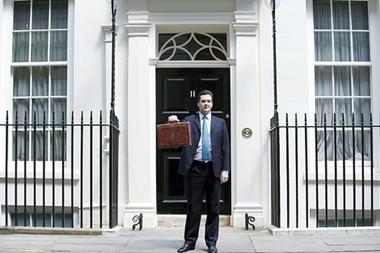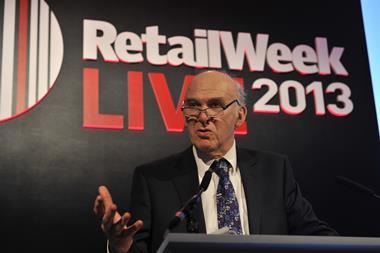Morrisons and Alliance Boots have made fresh calls to the Government to reform business rates, which they say are restricting investment and growth.
The big-name retailers made their submissions to the inquiry into the UK retail sector. Led by the Department for Business, Innovation and Skills (BIS) Select Committee, the inquiry is collating evidence presented by ‘stakeholders’ in the retail industry to asess the state of the sector.
The publication of the submissions comes ahead of the first evidence session for the Inquiry on Tuesday when the British Retail Consortium, the Association of Convenience Stores, the British Council of Shopping Centres and the Distressed Town Centre Taskforce will give evidence.
Grocer Morrisons has urged the Government to give retailers “greater certainty” in the business rates tax system to “promote further growth and investment”.
In its submission, Morrisons said: “Steep rises in business rates [which now exceed our Corporation Tax liability], and the lack of certainty in the rate-setting mechanism, are damaging confidence and weighing heavily on investment decisions.”
It added: “In the SME retail sector, business rate liabilities now frequently outstrip the cost of rent, which cannot be right.”
Morrisons, which paid nearly £1bn in total taxes last year, said the Government could offer more certainty on business rates by switching the way business rates are calculated from September’s RPI to a longer-run average of CPI.
Alliance Boots agreed with a change in the way rates are calculated.
It said: “The most significant challenge to operating successfully on high streets and town centres is business rates.”
Alliance Boots added that the two-year postponement of the rates revaluation to 2017, which was announced last year, “comes at a difficult time for many struggling retailers”.
In the run up to the Budget, Retail Week lobbied the Government to tackle the unfair business rates system through the Fair Rates for Retail campaign, which included switching the calculation to an annual estimate of CPI. Both Alliance Boots and Morrisons supported the campaign.
Retailers’ business rates bills have soared by more than £500m over the past two years.
The Government has committed to reviewing the calculation mechanism when fiscal consolidation plans have been implemented.
In its submission, jeweller F Hinds explained how it has had to turn down “several” shops because the rates bill is so high, and “often” more than the rent.
The retailer added: “This has meant that we have not employed several staff in each of these locations nor made an investment of the order of £400,000 to £500,000 each time. So as far as we are aware, in the vast majority of cases, these shops are still sitting empty.”
Such stores are generally in towns that are most at risk of retail collapse because of the number of empty shops.
F Hinds added: “Since 2007, every shop we have opened [eight] has been in a shopping centre and every shop we have closed [five] has been on a high street.
“This has not been a strategy or even a desire but the inevitable effect of increasing costs without increasing revenues in these locations and a worsening surrounding environment.”
Click here to find the submissions to the Inquiry.
























1 Reader's comment